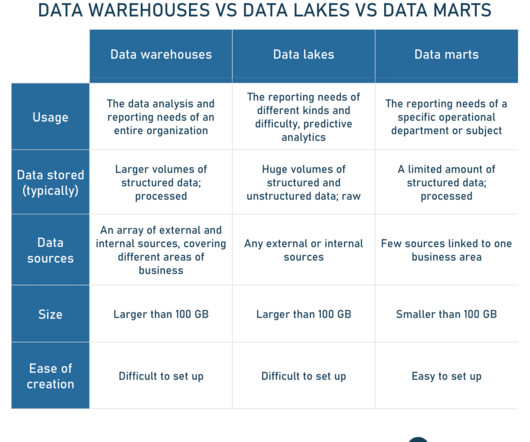Azure Data Engineer Skills – Strategies for Optimization
Edureka
FEBRUARY 9, 2023
In this blog on “Azure data engineer skills”, you will discover the secrets to success in Azure data engineering with expert tips, tricks, and best practices Furthermore, a solid understanding of big data technologies such as Hadoop, Spark, and SQL Server is required. According to the 2020 U.S.












Let's personalize your content